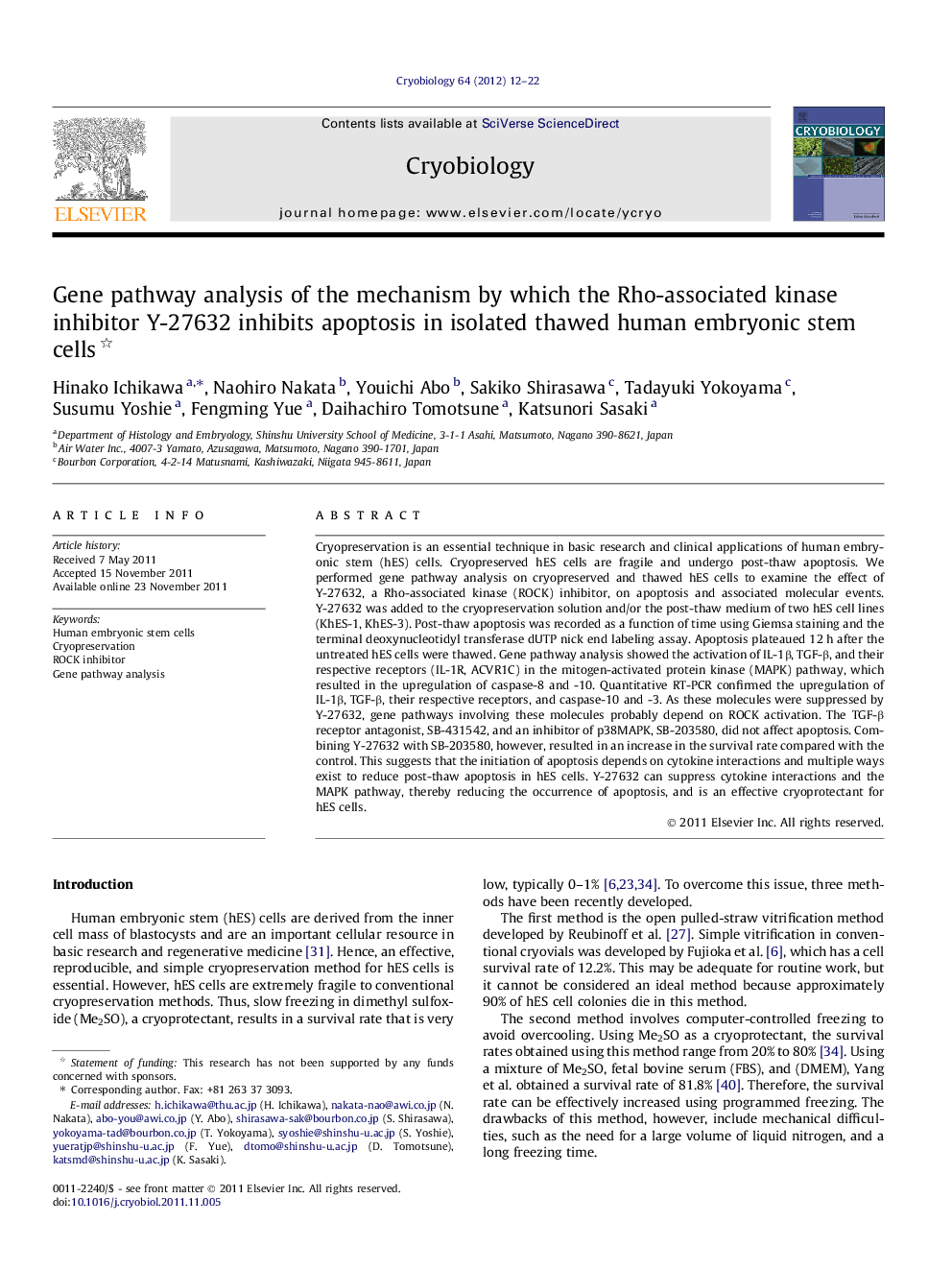| Article ID | Journal | Published Year | Pages | File Type |
|---|---|---|---|---|
| 2168683 | Cryobiology | 2012 | 11 Pages |
Cryopreservation is an essential technique in basic research and clinical applications of human embryonic stem (hES) cells. Cryopreserved hES cells are fragile and undergo post-thaw apoptosis. We performed gene pathway analysis on cryopreserved and thawed hES cells to examine the effect of Y-27632, a Rho-associated kinase (ROCK) inhibitor, on apoptosis and associated molecular events. Y-27632 was added to the cryopreservation solution and/or the post-thaw medium of two hES cell lines (KhES-1, KhES-3). Post-thaw apoptosis was recorded as a function of time using Giemsa staining and the terminal deoxynucleotidyl transferase dUTP nick end labeling assay. Apoptosis plateaued 12 h after the untreated hES cells were thawed. Gene pathway analysis showed the activation of IL-1β, TGF-β, and their respective receptors (IL-1R, ACVR1C) in the mitogen-activated protein kinase (MAPK) pathway, which resulted in the upregulation of caspase-8 and -10. Quantitative RT-PCR confirmed the upregulation of IL-1β, TGF-β, their respective receptors, and caspase-10 and -3. As these molecules were suppressed by Y-27632, gene pathways involving these molecules probably depend on ROCK activation. The TGF-β receptor antagonist, SB-431542, and an inhibitor of p38MAPK, SB-203580, did not affect apoptosis. Combining Y-27632 with SB-203580, however, resulted in an increase in the survival rate compared with the control. This suggests that the initiation of apoptosis depends on cytokine interactions and multiple ways exist to reduce post-thaw apoptosis in hES cells. Y-27632 can suppress cytokine interactions and the MAPK pathway, thereby reducing the occurrence of apoptosis, and is an effective cryoprotectant for hES cells.
